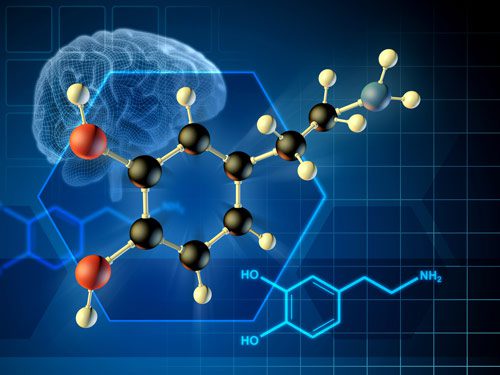
The Brain and Addiction
When your brain is functioning correctly, it is continually adapting to everything in your surroundings. Unfortunately, this adaptability is a major contributing factor to the formation of addiction, as the drugs cause the brain to change chemically and physically. Researchers know that addiction’s powerful hold comes from its ability to take over and sometimes destroy key areas of the brain whose purpose is to help us survive.
What Is Addiction?
Addiction is a brain disease. It is a chronic and complex condition that takes over the person’s life regardless of the consequences caused by their compulsive behavior. The American Society of Addiction Medicine defines addiction as a “treatable, chronic medical disease involving complex interactions among brain circuits, genetics, the environment, and an individual’s life experiences.” A medical condition that changes the way one or more of the body’s organs function is a disease. Addiction changes how the brain functions, essentially rewiring the brain’s basic structure.
How Does the Brain Work?
A simplified overview of how the brain works is given in an article from the National Institute of Drug Abuse.
- The brain is made up of billions of neurons, or cells, that form intricate circuits and networks that all work together.
- The neurons communicate with each other and control the flow of information by acting as switches.
- The neuron releases neurotransmitters that travel to the next cell to send a message and the process is repeated throughout billions of cells.
- The neurotransmitters are brought back to the original neuron that released them by transporter molecules.
- This action stops the signal between the neurons.
How Does Addiction Affect the Brain?
Although addiction to different drugs affects the brain in slightly different ways, according to a report from the Surgeon General, all drugs affect the functioning of brain circuits that involve pleasure (the reward system), self-control, decision-making, learning, and stress.
Scientists know that addiction causes changes in the brain at least four ways:
- It causes brain structures and how they function to change.
- It alters the brain’s homeostasis, or its natural balance.
- It changes the brain’s communication patterns.
- It changes brain chemistry.
When a person uses drugs or drinks alcohol, the way the neurons process, send, and receive signals by neurotransmitters is changed. The chemical structure of heroin, marijuana, and several other drugs mimic the body’s natural neurotransmitters and activate neurons. When this happens, the drugs attach themselves onto the neurons, changing the messages being sent throughout the brain’s network. Cocaine and amphetamines are examples of drugs that cause extremely large amounts of natural neurotransmitters to be released. They also interfere with the transporter molecules, preventing the natural recycling of the brain chemicals.
How Does Addiction Occur?
When a person takes drugs or drinks alcohol, they experience a “high.” The feeling of euphoria is caused by the surges of chemical compounds sending signals to the endorphin neurotransmitters, affecting the brain’s reward circuit. Endorphins are the body’s natural opioids.
There is also a surge of the neurotransmitter dopamine. Scientists believe dopamine reinforces the feeling of pleasurable activities causing the person to want to repeat the activity. By activating the brain’s reward circuit, drugs or alcohol train the brain’s neurons to seek out more of the substance that causes the good feeling. Over time, more and more of the substance is needed to achieve the “good” feeling, and addiction has developed.
If You Need Help
If you or a loved one is struggling with an addiction to drugs or alcohol, help is available. At English Mountain Recovery, located in the Smoky Mountains of Tennessee, our caring staff of professionals will help you regain your sobriety. You are not alone. Give us a call so we can answer your questions and help you begin our journey to living a clean and sober life.
 To learn more about programs offered at English Mountain Recovery, drug addiction treatment near Knoxville, call and speak with someone today at (877) 615-8569. We are ready to help you or your loved one recover.
To learn more about programs offered at English Mountain Recovery, drug addiction treatment near Knoxville, call and speak with someone today at (877) 615-8569. We are ready to help you or your loved one recover.About the Author: 
Terry Hurley is a retired educational professional and freelance writer with more than fifty years of experience. A former reading specialist and learning center director, Terry loved her years working with children in the educational field. She has written extensively for print and online publications specializing in education and health issues. For the last six years, her writing focus has been on addiction and mental health issues.




